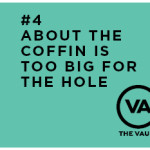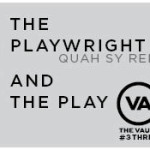Tan Tarn How’s Undercover is a farce about the Internal Security Department of “an imaginary country”. The play revolves around the Head of the department, his Deputy, and their first ever female recruit – a good-looking intelligence officer called Dolly Parton Ong who is promptly renamed “Jane” in a bid to appear plainer. Jane is tasked to infiltrate a charitable organisation called The Centre which is suspected of subversive activities. The focus of her covert mission is the Centre’s suave leader, Qiang. Meanwhile, tension brews as the Deputy schemes to take over the department from his witless Head.
Tan developed Undercover during the second cycle of TheatreWork’s Writers’ Laboratory programme. On Tan’s foray into farcical writing, Tay Tong, General Manager of TheatreWorks, wrote:
Tan Tarn How strikes a chord in all of us with his clever satire, Undercover. It is a piece of writing that is much-applauded and reflects a shift in his writing – from American realism (as seen in Home in the first compendium, Fat Firgins, Fast Cars and Asian Values) to an exploration of the farcical medium in a Brechtian manner.
Source: Laundry, Mergers & Undercover. TheatreWorks and Singapore Press Holdings (1995).
First Staging
Undercover was given a dramatised reading in September 1993, featuring T. Sasitharan, Alec Tok, Tan Kheng Hua and Lim Kay Tong, among others. The latter two actors returned the following year for the play’s first full production, joined by Casey Lim and Benjamin Ng in the four lead roles. Director Lok Meng Chue highlighted the motif of deception in the play:
“Nothing is what it seems… Everybody is out to deceive everybody else. The play shows how absurd it gets sometimes. There is a little bit of sexism and politics in the play, but these are peripheral to the central theme of deception.
“Tarn How and I agree that the play is about things that are ridiculous. It does not judge what is good or bad, but merely reveals one aspect of truth. Ultimately, it is up to the audience to pick what they want to see.”
Love and deception, but it’s just a frothy soap by Lee Yin Luen. In The Straits Times (16 November 1994), http://tinyurl.com/zddeq63
But the play, provocative and humorous as it is, received mixed reviews on its inaugural staging.
Whereas the intense Qiang (whose furrowed eyebrows hardly relax throughout the evening) plays it straight, the mechanical Jane moves from serious role-playing to absurd caricature.
The way these two modes subvert each other means that the audience can laugh through it superficially, or derive deeper meaning from their own recognition of, and reflection on, the stage happenings.
Source: Undercover, a revealing farce by Koh Buck Song. In The Straits Times (23 November 1994), http://tinyurl.com/gnvbeo6
[The plot] sounds like a good premise for some fun, but alas, Tan’s script, Lok Meng Chue’s direction and the cast fail to milk much laughter out of it.
To begin with, Tan does not have a good ear for dialogue. Given this shortcoming, the playwright would have done better if he had written an outright farce. Especially since he does have the ability to tell good jokes, and to come up with effective one-liners. However, for some inexplicable reason, he has chosen to throw in a dab of philosophy and a pinch of politics.
A farce falls flat on its face by Susan Tsang. In The Business Times (1 December 1994), http://tinyurl.com/jy8bdjm
Rooted in History
Nonetheless, part of the work’s appeal is that – fictitious country or not – many jokes and references are instantly recognisable to local audiences. Tan’s plays are often rooted in historical events, and Undercover is no exception. Observers have claimed that the Centre plotline was likely based on the 1987 Operation Spectrum, in which members of theatre company The Third Stage were detained without trial for suspected Marxist ties:
Tan’s plays occupy the terrain of “fictive realism or docudrama”, like Crimewatch on television, but infinitely refined by the sophistication of philosophical reflection and satirical treatment. […] Undercover gives a metadramatic spin to the Marxist conspiracy of 1987 when founding members of the local theatre company The Third Stage were arrested for allegedly subversive activity.
Source: Tan Tarn How: The playwright as social commentator extraordinaire by Dr. K. K. Seet. In Six Plays by Tan Tarn How. Epigram Books (2011).
Though Undercover explicitly states that the piece is meant to take place in “[a]n imaginary country”, the similarities between the play – as well as the play within it – and the incident it is based on (the arrests of members of The Third Stage theatre group as part of their involvement in the alleged Marxist conspiracy of 1987) are clear enough.
Source: Six of the Best: Compilation revives veteran playwright's greatest hits by Laremy Lee. In QLRS, Vol. 10(3), (2011), http://tinyurl.com/gp7fytx
Even though several years had passed since The Third Stage incident, Tan was understandably wary of how the authorities might react to his new play:
Tan was cautious. He cites the turbulent events of 1994, including the authorities’ decision to not fund the unscripted forms of performance art and forum theatre for a decade. He says: “There was change, but it was change only up to a certain extent. We came from ‘very restrictive’ to ‘less restrictive’, but it was definitely not freedom – not even some sort of restricted freedom.”
The Lady of Soul and Her Ultimate ‘S’ Machine heralded change by Corrie Tan. In The Straits Times (25 November 2014), http://tinyurl.com/gppoej2
Singapore was certainly “less restrictive” at the time – the newly-founded National Arts Council and the Censorship Review Committee had emerged in the early 90s to reassess regulation and censorship in the arts. With new guidelines in place, Undercover, though flagged, was eventually given the go-ahead:
In last year’s crop, journalist Tan Tarn How’s Undercover, a political satire about an internal security department, was one play considered potentially problematic.
But it was viewed as an exception rather than part of a trend, Mr Liew [Chin Choy, NAC’s director of arts programmes] noted.
The Drama Review Committee, the NAC’s advisory panel, decided the TheatreWorks’ play was acceptable in the context of the whole season’s line up.
Nine more drama groups exempted from censorship under new system by Koh Buck Song. In The Straits Times (25 May 1995), http://tinyurl.com/hj2ohex
Legacy
In 1996, Undercover was awarded the National Book Development Council Drama Award. It was restaged in 2001 by TheatreWorks in its festival “30 Plays in 30 Days” showcasing the work which had emerged from its Writers’ Lab.
Undercover remains a groundbreaking Singaporean play for its social commentary on censorship and authority through satire, and, according to theatre academic Dr. Robin Loon, is easily Tan’s best play.
Watch Dr. Loon chat with Tan Tarn How about Undercover:
First Staging of Undercover (1994)
| Date: | 17 November – 4 December 1997 |
| Venue: | Drama Centre Black Box (Fort Canning Hill) |
| Playwright: | Tan Tarn How |
| Director: | Lok Meng Chue |
| Cast: | Lim Kay Tong Benjamin Ng Tan Kheng Hua Casey Lim Wendy Kweh Sharon Lim Danny Jow |
More information available in the TheatreWorks Archive.
Undercover is available for browsing in our Book Den!
– Dirty Laundry, Mergers & Undercover: Plays from TheatreWorks’ Writers’ Lab. TheatreWorks (1995).
– Tan Tarn How: Six Plays. Epigram Books (2011).
By Daniel Teo
Published on 6 May 2016
The Vault: Project Understudy revisits Tan Tarn How’s Undercover and reimagines its sequel set in 2016 through a collaborative writing creation process. Conceived and edited by Dr Robin Loon and organised by NUS Thespis. Presented on 23 May 2016, 8pm at Centre 42 Black Box. Admission is free. Find out more here.






